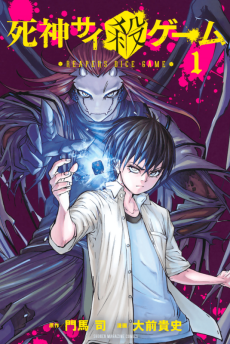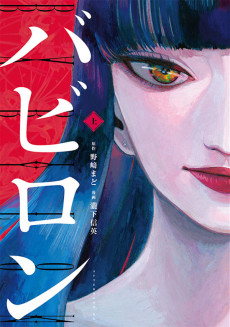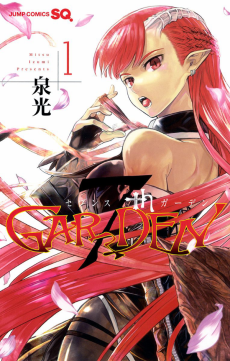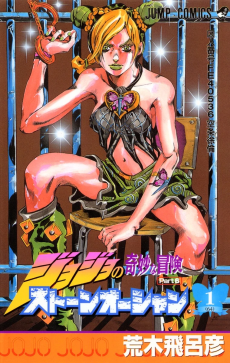PLATINUM END
STATUS
COMPLETE
VOLUMES
14
RELEASE
January 4, 2021
CHAPTERS
58
DESCRIPTION
As his classmates celebrate their middle school graduation, troubled Mirai is mired in darkness. But his battle is just beginning when he receives some salvation from above in the form of an angel. Now Mirai is pitted against 12 other chosen humans in a battle in which the winner becomes the next god of the world. Mirai has an angel in his corner, but he may need to become a devil to survive.
(Source: Viz Media)
CAST
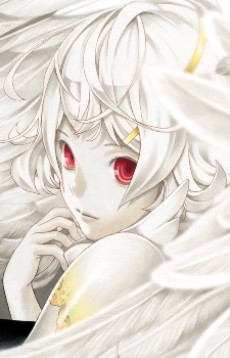
Nasse
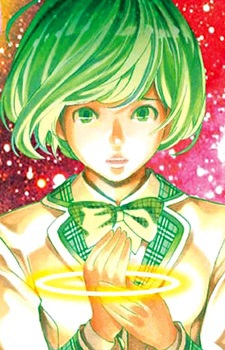
Saki Hanakago
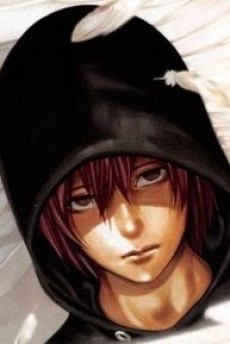
Mirai Kakehashi
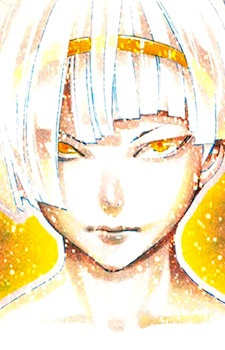
Revel
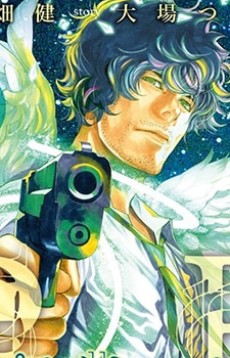
Nanato Mukaido
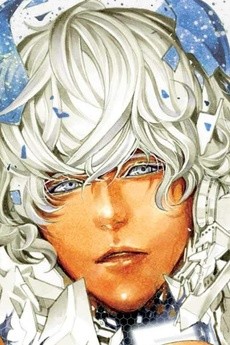
Kanade Uryuu
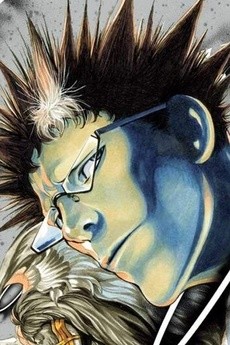
Gaku Yoneda
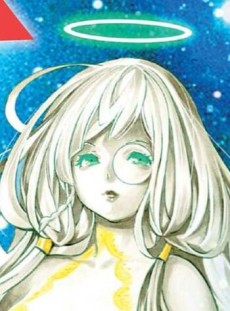
Baret
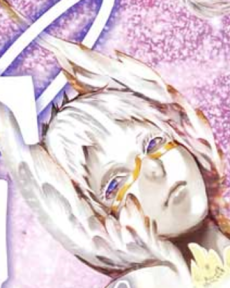
Meyza
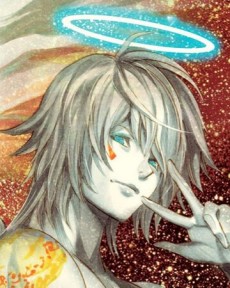
Balta
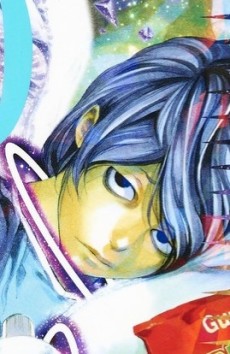
Shuji Nakaumi
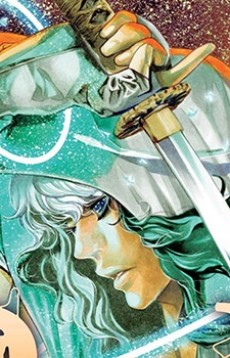
Hajime Sokotani
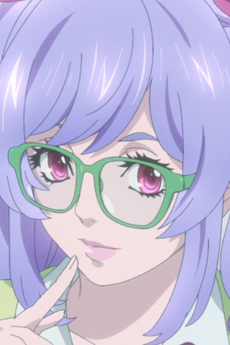
Mimimi Yamada
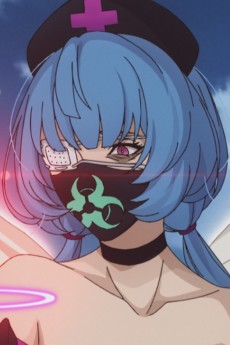
Fuyuko Kohinata
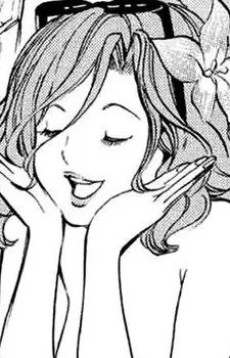
Yuri Temari
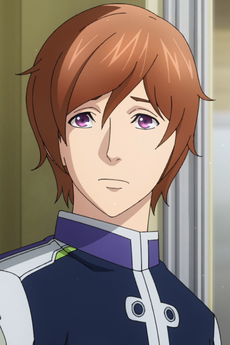
Mizukiyo Minamikawa
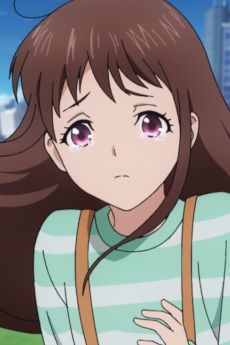
Chiyo Nakayama
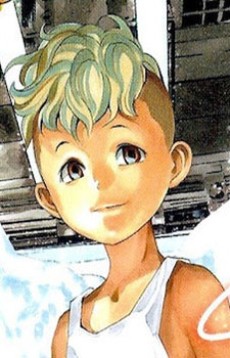
Susumu Yuito
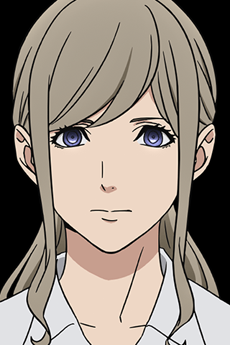
Manami Yumiki
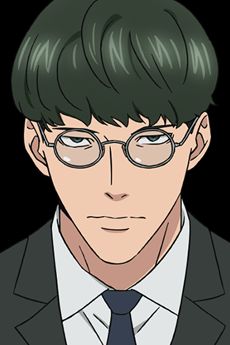
Masaya Hoshi
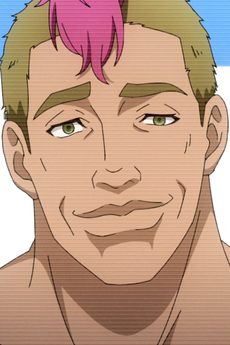
Tonma Rodriguez
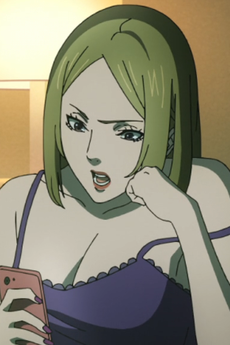
Mirai no Oba
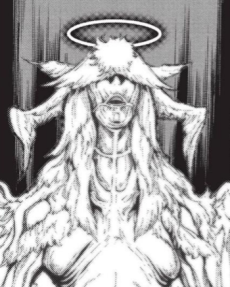
Muni
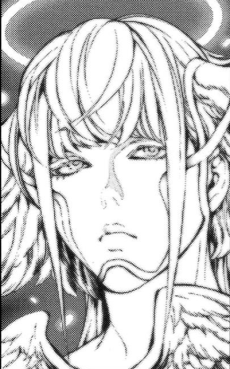
Ogaro
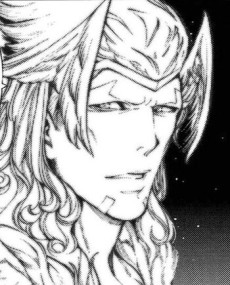
Yazeli
CHAPTERS
RELATED TO PLATINUM END
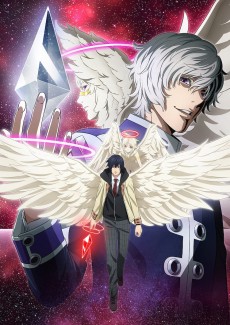 ANIME DramaPlatinum End
ANIME DramaPlatinum EndREVIEWS

Chizuo
80/100Review em português.Continue on AniListPlatinum End é a nova empreitada da famosa dupla responsável por sucessos como Death Note e Bakuman., composta pelo roteirista Tsugumi Ohba e pelo desenhista Takeshi Obata.
Não obstante, o novo formato de serialização (mensal, o que não foi o caso nas duas séries anteriores) colaborou muito para que a arte de Obata atingisse um nível impressionante. Ilustrações belíssimas, com um aspecto visceral e bastante dinâmico, facilitando a fluidez da leitura.
A panelização também é um destaque a parte, pois é conduzida de forma orgânica e agradável aos olhos. O ritmo dos diálogos é constantemente modificado, à medida que seções de "paredes de diálogo" são continuamente trocadas por ilustrações sem qualquer texto, que falam por si.
A princípio, o conceito de "battle royale para decidir quem será o próximo Deus" soa pretensioso, mas também é típico do gênero em que se encontra. Com a facilidade que há em se criar um battle royale em 2021, necessita-se de uma proposta minimamente original, tal como é o caso de qualquer subgênero em ascensão, invariavelmente.
Entretanto, tenho dúvidas se a abordagem dos autores quanto ao fornecimento de respostas aos questionamentos fundamentais à existência humana foi acertada. Apesar de beirar o clichê, com pouca originalidade nas respostas, pairando o "cada um tem seu motivo para viver," ou então o antigo dilema da causa primeira, a resposta final de Platinum End possui em seu subtexto um sutil espaço vago, preparado para a subjetividade do leitor.
No âmbito da caracterização, possuímos os personagens mais fracos da dupla, de um modo geral. O protagonista é, simplesmente, entediante. Vestindo os trajes de mocinho justiceiro, ele falha em representar o compasso moral que se predispõe a ser, resultando em, no máximo, uma casca vazia de repetição superficial de valores generalistas.
Na verdade, os destaques vão para alguns antagonistas. O professor Yoneda, por exemplo, é um excelente personagem, apesar de, por vezes, representar uma espécia de amálgama do cientista clássico. Hajime e Mukaido também representam bem o esquleto principal do modelo de personagem que seguem, sendo o primeiro um recluso social que sofre com a aparência, más habilidades de socialização e um ambiente familiar conturbado, enquanto o segundo é o pai de família preocupado com o bem-estar de seus entes queridos, a despeito de uma circunstância fatal que o rodeia.
O mistério em Platinum End é a sua maior coluna de sustentação. O principal seria quanto à própria natureza de Deus e a qual dos candidatos se tornará Deus. Entretanto, os autores falham em construir momentos de suspenses de boa qualidade, mesmo com uma poderosa premissa em mãos.
No geral, Platinum End foi uma grata surpresa. Me entreteve com sua belíssima arte, ritmo e premissas interessantes, que, embora carecessem de respostas concretas, ainda providenciaram um bom divertimento. Seu maior pecado é em seus personagens, que servem mais como representações monotônicas de clichês da demografia seinen do que tudo.

Zekonze
85/100distinctive? yes. revolutionary? no.Continue on AniListsome of you thought that once you see a manga written by the famous duo mangaka Tsugumi Ohba and Takeshi Obata, the first thing that crosses upon your mind is either "Death Note" or "Hikaru no Go"
but frankly enough, Platinum end is really different from their other works
the rest of my review will be full of un-marked spoilers.. - or maybe not that much, hehe
Death note is made to entertain the enjoyers of "the detective-mystery" - sort of thing, meanwhile Hikaru no Go is made to entertain the major shounen readers out there. it balances the game elements and the comedy elements like most shounens out there. Both of them later became really popular and is open to every readers/watchers of every genre. but platinum end is rather different from the author's previous work. it started of pretty much seinen-like, but something that the shounen readers can still grasp. and it later became the one thing that shounen readers cannot interwine with their entertainment medium

oh my of course i will elaborate further;
the story starts with a rather desperate man who loves a girl who actually falls in love with him yet also falls into a desperate situation once miraculously saw the main character committed suicide in a whim. and here the series is introduced with 10 other desperates and desperatees, and the existence of God whose his identity remain ambiguous started a contest ripped off from mirai nikki. (Well with an obvious reasoning this time) well, you could say it's a better mirai nikki. (An obvious superior one)
The first half rather started with something exhilarating, thrilling, yet captivating experience, rather crudely violent, bizarre(well, not as much as you think), and a rather bit of a less-psychological one. it is ment for its hype moments, and it does have it's hype moments. needless to say, the first half is written well done

though for those of you who read death note, you will find a certain similarity while reading platinum end. and that is the stack of opinions about the "second half is inferior to the first half of it, and we all know about this" well i wouldn't quite agree. What happened? it turns out the majority of readers quite disliked the philosophical storytelling of it, or rather the story is carried by the philosophical elements that amounts to 90% of it since then. I'd say i also really liked this arc, though it sort of loses its "shounen hype"-elements and turns it into a full-fledged seinen ones. its heavily mixed well-done of the psychological-philosophical elements.

what i quite dislike about the series is how incoherently combined both of the story arcs.
Death note combines both of the story arcs by recreating similar events that leads to the breakdown of the main character in the ending, it connects well between the first arcs and the finale ones. Platinum end however, is rather a miss.
The death of mukaido, metropolitan, doesn't bring a significance to later arcs, instead we were introduced into a rather different villain, like 180 twist compared to metropolitan. how it doesn't affects the second arc rather imbues me into dissatisfaction. You could say it's a rather 2 episodic arcs named "hype shounen" And "mindfuck seinen" both didn't fit the same sentence. It rather leaves some annoying questions like "is it okay if i skip the first half of it?" i mean yes you can, but we all know it's definitely the taboo of the weeblets out there.
Though overall this series is really fun and I would give it an 8 out of 10 overall.
Edit : i include Hikaru no Go up there because its "similar", not their works. incase of misunderstanding
Qwinntrell
73/100Platinum End is not the next Death Note, but was also never meant to beContinue on AniListPlatinum End is a bizzare manga, not just because the concept is basically Death Note in reverse but because it has some of the highest highs and also the lowest lows. I'm sure that almost everyone would have picked this up expecting a raw battle of wits as seen before in Death Note with the return of the iconic duo (Ohba & Obata) but even though the premise is similar, this isn't a battle shōnen although it appeared to be one in the first half. This manga is geared towards the more psychological aspects of godhood and morality and you would probably be let down if you're heading into this thinking that it'll be another Death Note. With that said though, this story isn't perfect, but it's not terrible either and is worth reading for the amazing art, various interesting concepts and the controversial ending which I felt was rather solid.
This is just my suspicion but it felt like Ohba formed the story using Death Note as a base but at the same time using the induction method to derive the ending of the story before crafting the rest of it. Without delving into any spoilers, the finale of the manga was a big twist that most readers did not expect (which was the reason for the whiplash feeling most felt upon first read), sending a strong anti-suicide message along with one of the most breathtaking spreads cum title drops I've seen in animanga, and an oddly optimistic nihilist ending combined with some great character peaks, conclusions and Obata's stellar art to top it off.
There are admittedly many parts of the story that had me puzzled as to why Ohba would write this such as when he projected his own political views on gay people onto Yuri along with Hoshi making the cringey nod of approval pushes up glasses. There were odd pacing issues that made certain conversations drag out far too long and preachy that just bored me to tears as I struggled to flip to the next page. And many characters including god candidates like Yuri or Manami simply weren't fleshed out at all and served to only act as shallow outlets for Ohba to add plot relevant dialogue and move on.
Putting my criticisms aside, I don't think that Platinum End should be reduced to a failed copy of Future Diary or a Death Note successor. It's a manga worth reading with strong delivery on its themes and art, and I'll touch on the former a little more to end of this review. The following delves into spoiler territory so beware:

The central theme of the story which is the pursuit of happiness was laid bare in the first chapter and became the deciding factor for the first major battle, with Mirai refusing to budge from his beliefs as his ideology gets constantly challenged and ridiculed. Mirai matured in his approach to the challenges he faced to circumvent his role as an executioner by never deviating from his pacifism, and thinking out of the box instead. However, the next opponent who was thrown into the ring could not be more perfect for his growth (Enter Yoneda).

“If I become God, I will do nothing”
A sharp contrast to Light from DN, Mirai's answer to the heavy responsibility of ruling over humanity is passivity. He had no desire to change the world as it was and only wished for everyone to live and be happy, he then exposed Dr. Yoneda. The ending to Platinum End is just as its name implies, purity's end, the end of all life, including the angels. The human condition included both happiness and suffering. The progenitor of life (Nasse) gave birth to humanity while the angel of darkness (Muni) sought to end it.

The creature's purpose was to end life, and Shuji became the trigger. Even a genius scientist couldn't fathom the importance of life, so this was the main message of the ending. There is value in living, and the author wants us to know that. Drunk on the idea of validating suicide as a way out, Shuji took a white arrow to the chestーa Platinum End, and his actions ended the suffering and happiness of everyone else, unbeknownst to him.
The main takeaway? He was wrong. His foolish actions affected billions of people around the world, by taking away suffering but also joy. Mirai is the perfect antithesis to this idea. He thanks Nasse for giving him a chance to live again, to be happy. This isn't a nihilistic ending, it begs us to never give up on life, and Mirai's development is proof of that.

On the other hand, Dr. Yoneda doesn't even get to finish his rambling, because it never mattered what the creature was in the end. He was fixated on the wrong details from the very beginning. His obsession with the non-existence of God is irrelevant. You don't need to be an atheist to enjoy life to the fullest or to find meaning in life. It's just that simple.

And that is the true meaning of Platinum End. Thank you for reading my review.
SIMILAR MANGAS YOU MAY LIKE
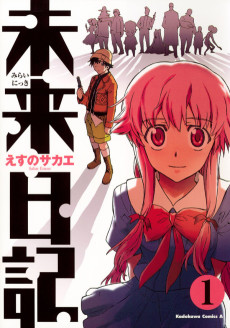 MANGA ActionMirai Nikki
MANGA ActionMirai Nikki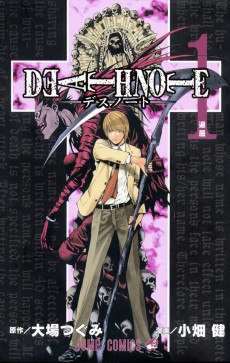 MANGA DramaDEATH NOTE
MANGA DramaDEATH NOTE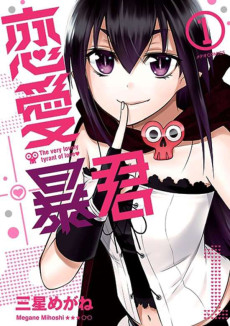 MANGA ComedyRenai Boukun
MANGA ComedyRenai Boukun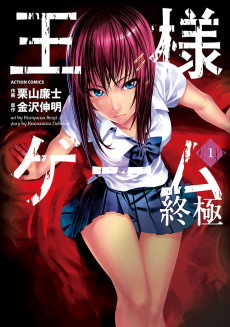 MANGA HorrorOusama Game Shuukyoku
MANGA HorrorOusama Game Shuukyoku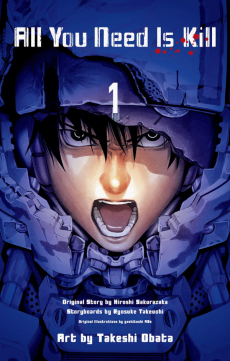 MANGA ActionAll You Need Is Kill
MANGA ActionAll You Need Is Kill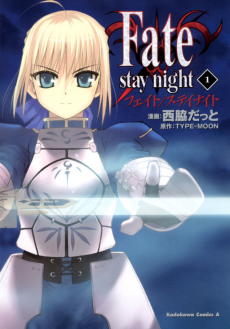 MANGA ActionFate/stay night
MANGA ActionFate/stay night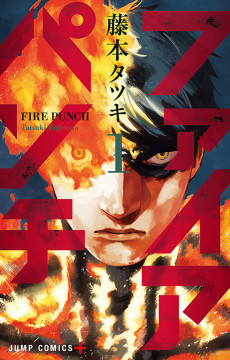 MANGA ActionFire Punch
MANGA ActionFire Punch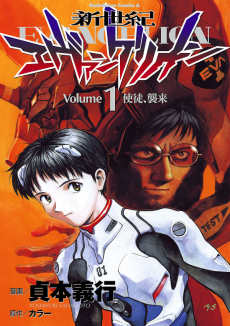 MANGA ActionShin Seiki Evangelion
MANGA ActionShin Seiki Evangelion
SCORE
- (3.05/5)
MORE INFO
Ended inJanuary 4, 2021
Favorited by 327 Users

